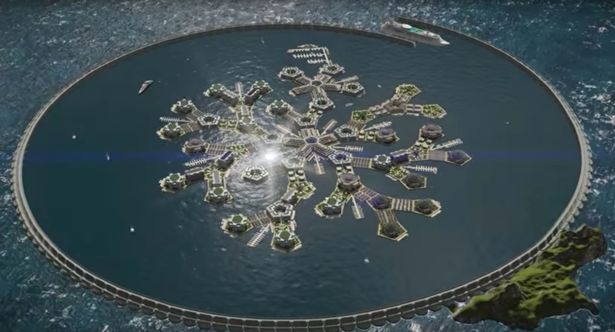A new Atlantis? Floating nation being built in the Pacific, designed to “liberate humanity from politicians”
12/13/2017 / By Frances Bloomfield

Come 2020, a part of Pacific Ocean will serve as the base for the world’s first floating nation. That’s the plan of the Seasteading Institute, an international organization committed to the establishment of autonomous, seaborne communities. The groups intends on beginning construction in 2019, and by the next year plans on welcoming hundreds of people into the country designed to “liberate humanity from politicians.”
Joe Quirk, president of the Seasteading Institute, has said that he plans for this floating nation to be the first of many, and each will offer “different ways of governance” free of politicians and bureaucrats. Quirk added: “Governments just don’t get better. They’re stuck in previous centuries. That’s because land incentives a violent monopoly to control it.”
To that end, the Seasteading Institute signed an agreement with the French Polynesian government. This would allow the group to use the waters off Tahiti as the springboard for its vision, and would authorize the government to create a special economic zone to allow the future nation to work under its own trade laws. Furthermore, French Polynesia has allocated 100 acres of beachfront to the Seasteading Institute. (Related: Company reveals ambitious plans to build world’s first floating city in the Pacific Ocean.)
The floating nation itself would have such facilities as sustainable energy powerhouses, medical research facilities, aquaculture farms, offices, hotels, and much more. But before all that, Quirk stated that they would build the first city, itself a system of 11 rectangular, five-sided platforms made from reinforced concrete that could be rearranged to suit the inhabitants’ needs. The structures, meanwhile, would be composed of local bamboo, coconut fiber, wood, and recycled metal and plastic, and would feature “green roofs” blanketed in vegetation.
The square and pentagon-shaped platforms would be about 50 m (164 feet) in length and require 50-meter sides to defend the structures and their residents, according to a feasibility report by Dutch engineering firm Deltasync. Moreover, the feasibility report noted that the project is indeed doable from an economic perspective: Each platform would cost around $15 million, while the overall cost of the first city would amount to a cool $167 million.
In addition to providing freedom from “monopolies,” the Seasteading Institute has claimed that it will “give people the freedom to choose the government they want instead of being stuck with the government they get.”
From floating nations to smart cities
Similar to the endeavors of the Seasteading Institute, Bill Gates himself has purchased about $80 million’s worth of Arizona desert to build a “smart city.” Known as Belmont, the planned community will be built with “cutting-edge technology” such as high-speed data networks and self-driving cars.
According to the DailyMail.co.uk, Belmont will have as many as 80,000 homes, 3,800 acres of space for industrial, office, and retail use, 3,400 acres of open space, and 470 acres for public schooling. No other details about the project have been released. Though what is known is the freeway I-11, a highway that will connect Belmont to Las Vegas, will have its first phase of construction finished by next year.
“Comparable in square miles and projected population to Tempe, Arizona, Belmont will transform a raw, blank slate into a purpose-built edge city built around a flexible infrastructure model,” said Belmont Properties in a press release.
Could this be a sign of things to come? From autonomous floating nations to a smart city in Arizona, it seems that enterprising organizations and individuals are taking the concept of independence to the next level. Of course, neither of these projects have fully materialized just yet, but they are projects that seem worth keeping a watchful eye on. If only to see how the former will save us all from lawfully and unlawfully elected officials.
Stay updated on both stories by visiting Newstarget.com today, your number-one source for news from the country and the world.
Sources include:
Tagged Under: artificial intelligence, automated cities, Belmont, floating city, floating nation, future, future city, future tech, futuristic cities, robotics, smart projects, technology
RECENT NEWS & ARTICLES
COPYRIGHT © 2017 COMPUTING NEWS




















